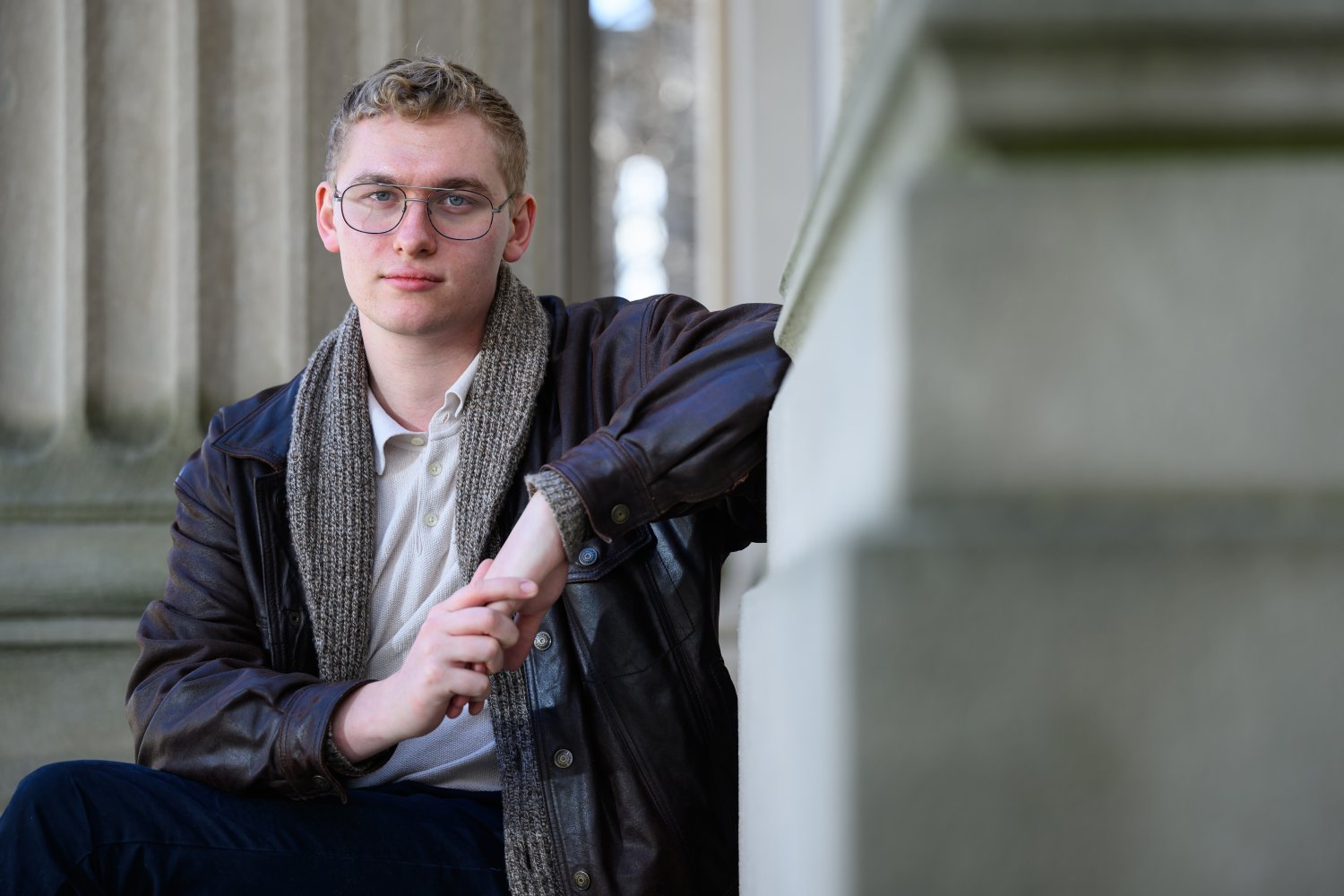Liam Hines ’22 didn’t move to Sarasota, Florida, until high school, but he’s a Floridian through and through. He jokes that he’s even got a floral shirt, what he calls a “Florida formal,” for every occasion.
Which is why it broke his heart when toxic red algae used to devastate the Sunshine State’s coastline, including at his favorite beach, Caspersen. The outbreak made headline news during his high school years, with the blooms destroying marine wildlife and adversely impacting the state’s tourism-driven economy.
In Florida, Hines says, environmental awareness is pretty high because everyday citizens are being directly impacted by climate change. After all, it’s hard not to worry when beautiful white sand beaches are covered in dead fish. Ongoing concerns about the climate cemented Hines’ resolve to pick a career that would have a strong “positive environmental impact.” He chose nuclear, as he saw it as “a green, low-carbon-emissions energy source with a pretty straightforward path to implementation.”
Undergraduate studies at MIT
Knowing he wanted a career in the sciences, Hines applied and got accepted to MIT for undergraduate studies in fall 2018. An orientation program hosted by the Department of Nuclear Science and Engineering (NSE) sold him on the idea of pursuing the field. “The department is just a really tight-knit community, and that really appealed to me,” Hines says.
During his undergraduate years, Hines realized he needed a job to pay part of his bills. “Instead of answering calls at the dorm front desk or working in the dining halls, I decided I’m going to become a licensed nuclear operator onsite,” he says. “Reactor operations offer so much hands-on experience with real nuclear systems. It doesn’t hurt that it pays better.” Becoming a licensed nuclear reactor operator is hard work, however, involving a year-long training process studying maintenance, operations, and equipment oversight. A bonus: The job, supervising the MIT Nuclear Reactor Laboratory, taught him the fundamentals of nuclear physics and engineering.
Always interested in research, Hines got an early start by exploring the regulatory challenges of advanced fusion systems. There have been questions related to licensing requirements and the safety consequences of the onsite radionuclide inventory. Hines’ undergraduate research work involved studying precedent for such fusion facilities and comparing them to experimental facilities such as Princeton University’s Tokamak Fusion Test Reactor.
Doctoral focus on legal and regulatory frameworks
When scientists want to make technologies as safe as possible, they have to do two things in concert: First they evaluate the safety of the technology, and then make sure legal and regulatory structures take into account the evolution of these advanced technologies. Hines is taking such a two-pronged approach to his doctoral work on nuclear fission systems.
Under the guidance of Professor Koroush Shirvan, Hines is conducting systems modeling of various reactor cores that include graphite, and simulating operations under long time spans. He then studies radionuclide transport from low-level waste facilities — the consequences of offsite storage after 50 or 100 or even 10,000 years of storage. The work has to make sure to hit safety and engineering margins, but also tread a fine line. “You want to make sure you’re not over-engineering systems and adding undue cost, but also making sure to assess the unique hazards of these advanced technologies as accurately as possible,” Hines says.
On a parallel track, under Professor Haruko Wainwright’s advisement, Hines is applying the current science on radionuclide geochemistry to track radionuclide wastes and map their profile for hazards. One of the challenges fission reactors face is that existing low-level waste regulations were fine-tuned to old reactors. Regulations have not kept up: “Now that we have new technologies with new wastes, some of the hazards of the new waste are completely missed by existing standards,” Hines says. He is working to seal these gaps.
A philosophy-driven outlook
Hines is grateful for the dynamic learning environment at NSE. “A lot of the faculty have that go-getter attitude,” he points out, impressed by the entrepreneurial spirit on campus. “It’s made me confident to really tackle the things that I care about.”
An ethics class as an undergraduate made Hines realize there were discussions in class he could apply to the nuclear realm, especially when it came to teasing apart the implications of the technology — where the devices would be built and who they would serve. He eventually went on to double-major in NSE and philosophy.
The framework style of reading and reasoning involved in studying philosophy is particularly relevant in his current line of work, where he has to extract key points regarding nuclear regulatory issues. Much like philosophy discussions today that involve going over material that has been discussed for centuries and framing them through new perspectives, nuclear regulatory issues too need to take the long view.
“In philosophy, we have to insert ourselves into very large conversations. Similarly, in nuclear engineering, you have to understand how to take apart the discourse that’s most relevant to your research and frame it,” Hines says. This technique is especially necessary because most of the time the nuclear regulatory issues might seem like wading in the weeds of nitty-gritty technical matters, but they can have a huge impact on the public and public perception, Hines adds.
As for Florida, Hines visits every chance he can get. The red tide still surfaces but not as consistently as it once did. And since he started his job as a nuclear operator in his undergraduate days, Hines has progressed to senior reactor operator. This time around he gets to sign off on the checklists. “It’s much like when I was shift lead at Dunkin’ Donuts in high school,” Hines says, “everyone is kind of doing the same thing, but you get to be in charge for the afternoon.”

